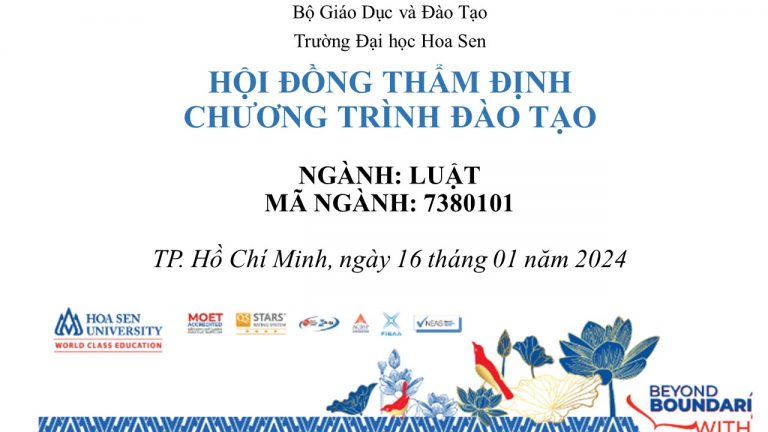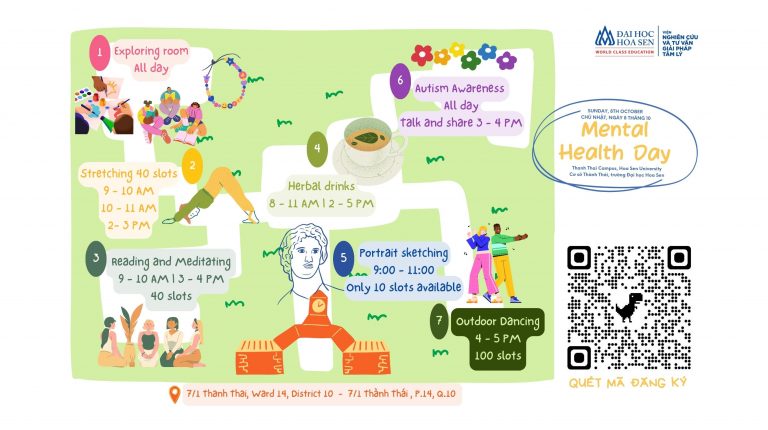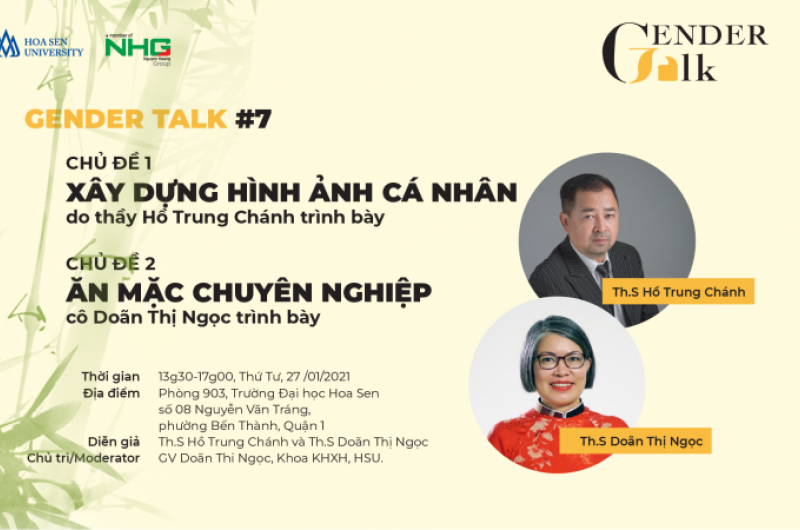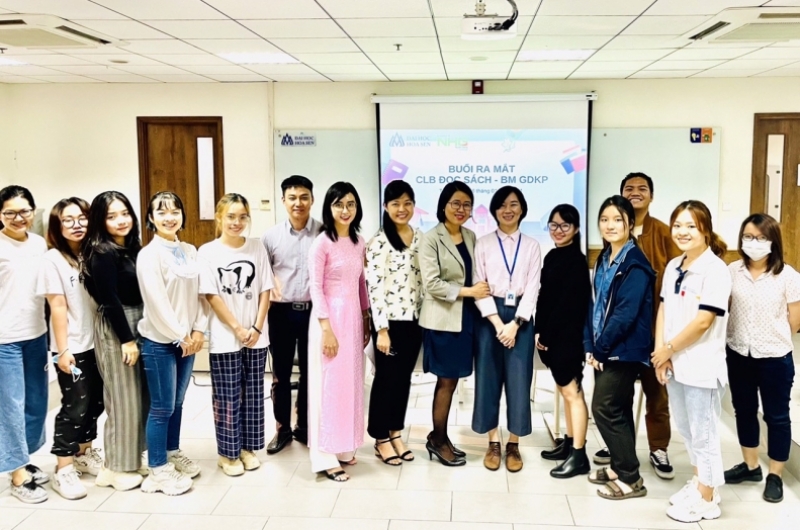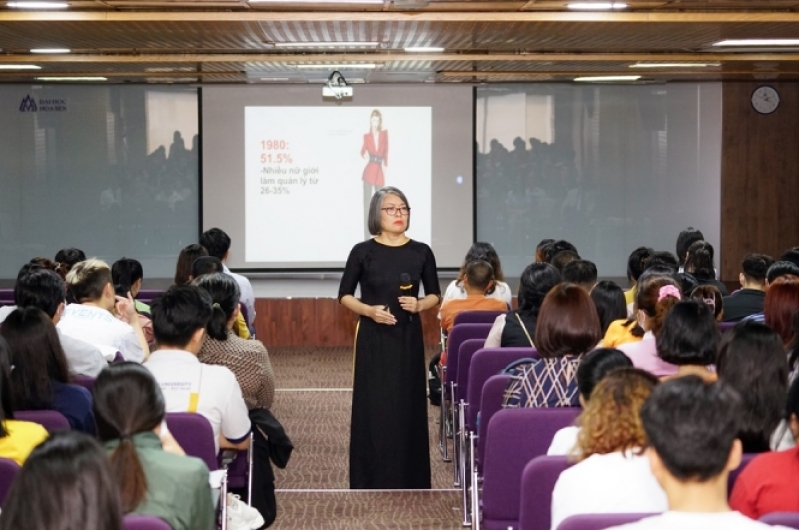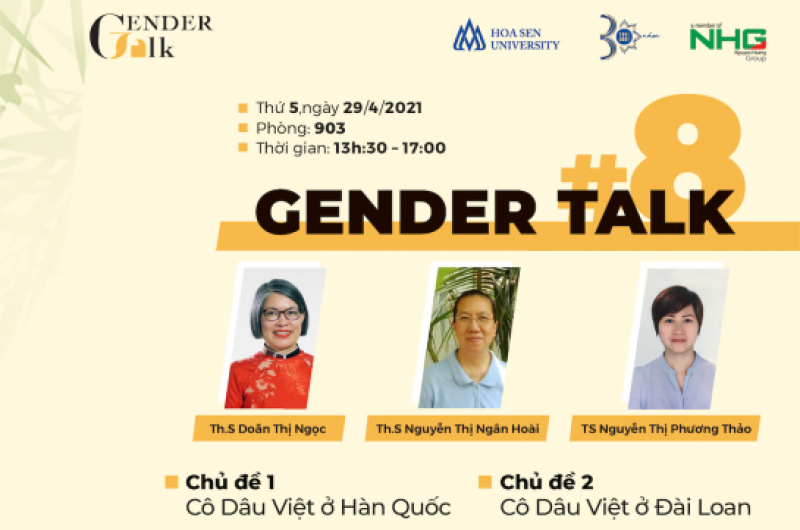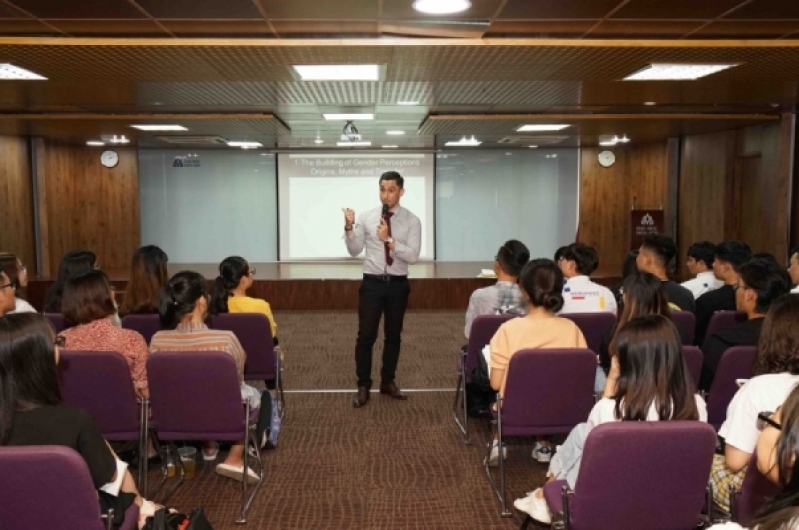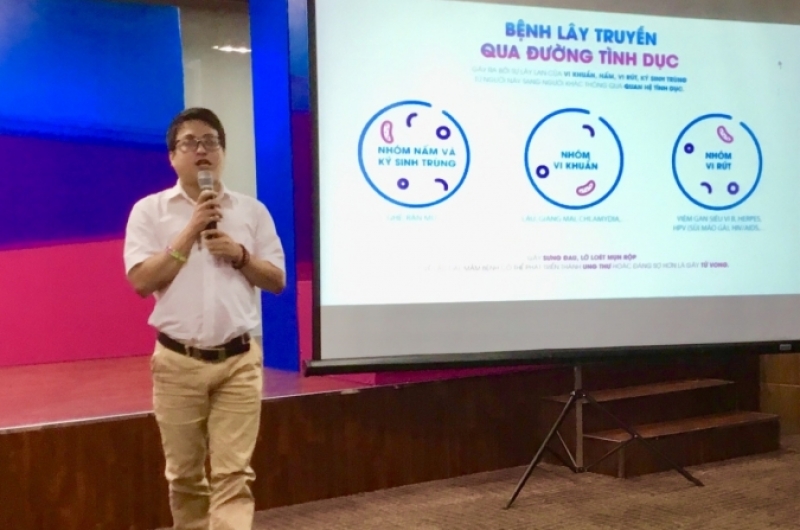Culture and Development
Master Bui Nguyen Han
Department of Philosophy, Faculty of Social Sciences, Hoa Sen University
- Culture is the foundation for development
Culture and development is an extremely complex issue on an ideological level, in practical activities that are not specific to any subject but refer to common existence and development. In development, cultural values are always kept in mind.
Economic development is always the driving force for other factors of society such as culture, education, and health to make progress. Here, economics is considered an important factor for growth. This growth does not fall from the sky. It is the result of the labor of many generations, this origin must start from scientific revolutions. Meanwhile, science is considered one of the three basic elements of culture (philosophy, science, religion). This shows that culture and economy have a close relationship in development.
In the rapid development of all aspects of social life in different aspects, there has been an opposition between culture and development that has caused obstacles and led to conflicts between communities, Ethno-religious conflicts in some developed countries with hegemonic ambitions based on both totalitarianism and liberalism have provided a model of imposition on other countries without suitable to the practical conditions and fine customs of that country.
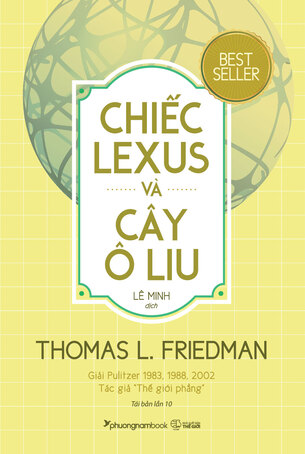
Thomas L. Friedman – an American journalist, working for the New York Times, when writing about globalization, used a very good image of the Lexus and the Olive Tree to show the preservation of cultural values. tradition and development as an inevitable rule. Globalization is a progressive trend of the free market in a free trade world, whether or not it will flatten the olive tree that symbolizes traditional cultural values. How traditional values that adapt slowly will survive is a big question without easy solutions. If you delay, you will stay further and further behind. It will become the backyard if you rush to integrate without meeting the conditions. What will the identity of our nation and the people of our country look like on the world map when people look at it?
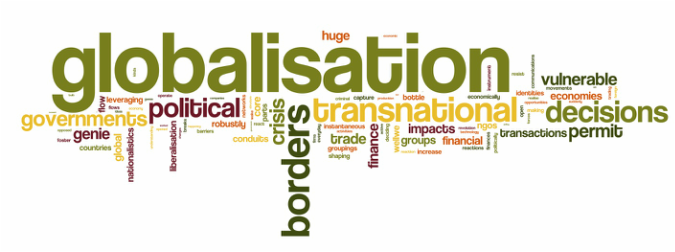
The wave of globalization spreads so quickly that people are still shocked when it has reached everywhere, with its advantages and limitations that scholars, policymakers, and government officials will bring to light. out measures and action plans. But what we care about is culture and globalization – representative of how development will live together in the same big house – the modern world. Some scholars use the concept of postmodernity – here we only consider the concept of modernity, because many countries and territories where communities live have not reached modernity. Modern concept – a concept that refers to the development of society.
Culture is considered a typical representative of traditional values with characteristics in community activities that are not by themselves strong enough to convey to us freedom and creativity because human needs are endless. But without culture, we are still not truly human in its true sense. Somewhere, if culture is promoted extremely, focusing only on its values and excluding the acceptance of other types of culture, it will also isolate itself and be molded into rigid models. Extremism creates a discriminatory view of other ethnic groups as slow-moving and barbaric in need of civilization, like when colonialists invaded to turn that place into a colony. This not only happened in the past but also in the past. Even at the time of the 20th century and into the 21st century, there were still ways of imposing force to bring about annexation, creating a very fierce impact as what happened in World War II proved. or the ongoing genocide in Africa, and conflict in the Middle East; Even though we know that behind it there are still economic benefits, the cultural roots still have to be taken into account.
It is also impossible to completely attribute it to economics and economic interests, because how will we explain and understand the ethnic and religious conflicts that still occur within a community and a country? Everyday.
But there is also another question: why does globalization bring great benefits not only to a single country or community, but also to the whole world if we know how to take advantage of it, promote it, and embrace it? chance. Values and benefits symbolize the development of this trend, but there is also a lot of opposition.
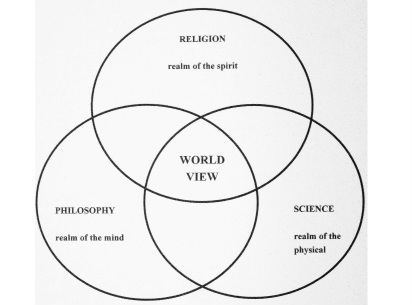
Science, philosophy, and religion are basic elements of culture, so they can be seen as the foundation and orientation for development. They should be seen in correlation, not as servants and promoted. each lowers the other as has happened throughout history.
That’s why many scholars believe that culture plays the role of the core force for development. Not carefully studying culture or disregarding culture has led to serious failures in conducting economic activities. Seasoned capitalists in the marketplace often thoroughly research the places they decide to invest, and culture is, of course, the first thing to consider. Of course, we should not view culture as a deterministic thing because economics plays a pivotal role in development. We still know that economic growth is not the same as development because development has a valuable and meaningful meaning. much wider.
Culture is often mentioned as value systems preserved in tradition that have strong vitality and influence on the present, and what is modern is often seen as representing development. Reality proves that where culture goes hand in hand with development, that society is often economically sustainable, and spiritually it rarely encounters roughness and instability in the mind and moral standards. Being respected should lead to a harmonious society. Of course, we shouldn’t have a one-sided understanding of the need to see the old go so that the new can gain a foothold. Consensus always creates strength.
2. Culture is present in development
Culture contributes greatly to maintaining the continuity of development and is a bridge to the compatibility of tradition and modernity. Practical reality proves that it is not easy for modernity to penetrate life as a product of the economy. There must be adaptation before we can talk about appropriate transformation and then consider absorbing reasonable nuclei to create unique values. For example, pre-war Vietnamese poetry absorbed modernity into tradition, creating typical characteristics and values, and embodying creative tendencies like the two authors of the book “Poets”. Vietnam” affirms: “Don’t compare one person with another. Let’s compare era with era. I decided that in Vietnamese poetry there has never been an era as rich as this one” 1 .
In terms of society, culture, and development ensure the maintenance of a stable society, without a deep distinction between rich and poor. In terms of academics, these are two concepts that represent two different existences, but the focus is on serving human life, so they go hand in hand.
Modern science is considered a representative of the development trend that also derives from classical traditional values but has soon gone beyond to bring creative ideas into practice. The history of science has also gone through many paths with countless obstacles. The Descartes-Newton standard system did not save the decline of rationalism, people doubted that role. Modern science has exposed those shortcomings. That turbulence covers all aspects. The reaction sprang up to gradually fill the void. New ideas and standards are formed to guide the way.
Culture is not associated with development, then relationships and value orientations cannot ensure continuity in development. Culture changes but science is in crisis. That crisis needs to find a way out. And then people still have to question the relationship between tradition and modernity to overcome unwanted consequences.
Development allows us to see culture as the foundation for development. Still, it also allows us to thoroughly understand that culture, in any aspect, is associated with traditional values. Although adaptation exists, the ability to improvise is slow, which often creates stagnation. Development has contributed to promoting and orienting to ensure that awareness and that type have changes to comply with the laws of existence. We see that in development, many things have been eliminated or left behind the backward, slow-moving, conservative, and stagnant things that are the main factors hindering and inhibiting development.
A solid, stable foundation allows us to consider change or grasp quickly to keep up with progress. To achieve systematicity and novelty, we must respect the movement of reality to build appropriate theoretical models that do not go too far from reality or lag behind reality.
Culture and development are a complete whole, interacting with each other. The separation will lead to distance from the origin, which is the profound cause of instability and the gradual loss of human nature, or in other words, increasing alienation as mentioned above.
The attraction of modern science in recent decades has led to many different assessments of development in general. Mainly there are still internal contradictions in economic development. The economic crisis has a huge impact, but it does not destroy everything. During periods of economic crisis, some countries were able to escape and then had impressive recoveries and growth. The good application of policies and timely measures and tools has been a lever to create momentum.
Researchers do not ignore this problem, but in the intertwining of relationships like a spider’s web, it is difficult to calculate them all. Therefore, people offer many solutions that are not condensed or differentiated, such as integration and development, communication and acculturation; links and alliances between organizations and regions.
The power of development is considered a comprehensive development with a large-scale spread as the driving force to promote and maintain, but the reception depends mainly on the receiving subject such as the process of development. reception and capacity. Not where there is widespread development, you can immediately understand it. Specific circumstances and characteristics will determine suitability or not. Failure to follow the rules has and will have severe consequences and lessons.
Culture and development are abilities and creativity expressed at a universal level in the complexity of a complex whole that is considered in all dimensions of social life. As a result, it brings unity into a complete system. In the trend of globalization, coexistence between different types of societies with different levels of development requires taking into account individual and common values in unity and harmony. Opposition creates momentum for development, but clearly, opposition is regression.
Cultural diversity has created a colorful and vivid picture, but not all penetration is effective. The dilemma of complexity and shape in development is a barrier to this penetration. Development changes very quickly, sometimes going too far, while the transmission of cultural values is not easy to keep up with to direct those values in a positive direction of life.
It is clear that reviewing traditional values contributes to creating momentum, but whether and what kind of resistance there will be requires careful consideration. George F. Mclean pondered that “sometimes tradition is interpreted as a threat to individuality and social freedom, which is essential to democracy, so it is important to emphasize here that a traditional culture is born of the free and responsible lives of the members of a given community or civil society and has the ability over generations to carry out their lives with freedom and creativity” 2.
Note
1. Hoai Thanh, Hoai Chan (2000), Vietnamese Poets, Literature Publishing House, p29
2. George F. Mclean, Pham Minh Hac (2007), People, nations and cultures: living together in the era of globalization, National Political Publishing House, p. 260.
References
- Do Loc Diep (2003), America-Europe-Japan: Culture and development, Social Sciences Publishing House, Hanoi.
- Thomas L. Friedman (2020), The Lexus and the Olive Tree, World Publishing House.
- Alvin Toffler (2019), The Third Wave, World Publishing House.

